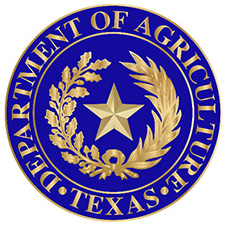In harsh year, U.S. crop acreage shrinks 5 percent
The rainiest spring in a quarter-century slowed the planting season and helped limit U.S. farmers to their smallest crop area in five decades, said the government in assessing 2019 production. Early snowfall and icy autumn weather prevented growers from harvesting more than 600 million bushels of corn, and the USDA said it would update estimates of corn and soybean supplies, if warranted, “once producers are able to finish harvesting remaining acres.”
USDA proposes new criteria for fair play in livestock marketing
More than two years after killing an Obama-era proposal to make it easier for livestock producers to prove unfair treatment at the hands of meat processors, the Trump administration said it wants to use four criteria to determine whether packers give undue or unreasonable preference to one producer over another.
Talks & Eats – Manhattan – Surf ‘n’ Turf: Can our seafood survive Big Ag and climate change?
As oceans warm, our major fisheries are shifting. At the same time, farm runoff is contributing to dead zones from the Gulf of Mexico to Long Island. Both of these issues – climate change and farming practices – affect the health of ocean ecosystems and, ultimately, the seafood that winds up on our plates. Join moderator and best-selling author Paul Greenberg and our panel for a stimulating discussion Feb. 10, 2020, 7:30 p.m., at Subculture in Greenwich Village. VIP reception with drinks and bites beforehand.
As the Salton Sea shrinks, a toxic mess looms
The Salton Sea, the largest lake in California, is drying up, revealing a bed packed with toxic chemicals, the residue of a century of runoff from Imperial Valley farms. Public-health experts worry that those chemicals pose a grave risk to the health of people who live nearby, mostly farmworkers, the elderly and families too poor to relocate, published with The Weather Channel.
TODAY’S QUICK HITS
Farmers fear state impediments to hemp (Associated Press): With more than 2,000 acres of farmed hemp, growers in Maine fear that higher fees and stricter limits on the THC content of their crops will slow the growth of a promising new industry.
Bunches of GE cherry tomatoes (Modern Farmer): Researchers used gene editing to develop cherry tomatoes that grow in bunches and on shorter stems, optimal for small spaces, such as urban or indoor gardening.
Joint website for biotech regs (FDA): The three agencies that regulate biotechnology — FDA, EPA and USDA — launched a “unified website” that describes the federal review process for biotech products and allows submission of questions to agencies.
3D-printed faux meat (Guardian): A Spanish startup company, NovaMeat, says its extrudes ingredients such as pea, seaweed and beetroot juice into fine fibers as part of a 3D-printed, plant-based steak and aims to bring its product to restaurants in Spain and Italy this year.
ON THE CALENDAR
Monday
– National Association of Wheat Growers and U.S. Wheat Associates hold Wheat Industry Winter Conference, through Friday, Washington.
– School Nutrition Association holds annual School Nutrition Industry Conference, through Tuesday, Indian Wells, California.
Tuesday
– Senate Environment and Public Works Committee meets at 10 a.m. in 406 Dirksen and Senate Budget Committee meets at 10:30 a.m. ET in 608 Dirksen to vote on the United States-Mexico-Canada Agreement.
– USDA releases monthly Oil Crop Outlook and Cotton and Wool Outlook tables, noon ET.
– USDA releases monthly Feed Outlook, Rice Outlook and Wheat Outlook, 3 p.m. ET.
– Potato Expo 2020, through Wednesday, Las Vegas, Nevada.
– United Fresh Start Foundation holds annual FreshStart Conference, through Thursday, Tucson.
Wednesday
– President Trump and Vice Premier Liu He of China sign “phase one” agreement to de-escalate the Sino-U.S. trade war, 11:30 a.m. ET, The White House. Treasury Secretary Steve Mnuchin said the agreement calls for China to buy “$200 billion of additional products across the board over the next two years, and, specifically in agriculture, $40 billion to $50 billion,” reported Reuters on Sunday.
– Senate Health Committee meets at 10 a.m. in 430 Dirksen and Senate Commerce Committee meets at 10 a.m. in 216 Hart to vote on United States-Mexico-Canada Agreement.
Thursday
– USDA releases monthly Livestock, Dairy and Poultry Outlook, noon ET.
– USDA releases monthly Sugar and Sweetener Outlook, 3 p.m. ET.
– Colorado Winter Hemp Summit, Boulder, Colorado.
– German Food and Agriculture Ministry holds Global Forum for Food and Agriculture, through Saturday, Berlin.
– Senate Foreign Relations Committee meets to vote on United States-Mexico-Canada Agreement, 10 a.m. ET, S-116, The Capitol.
Friday
– American Farm Bureau holds annual meeting and trade show, through Jan. 22, Austin, Texas. Agriculture Secretary Sonny Perdue is scheduled as keynote speaker on Jan. 20, with EPA administrator Andrew Wheeler also to speak. On the final day of the meeting, delegates vote on AFBF policy on food and agriculture issues.
– Northeast Organic Farmers Association holds New York State winter conference, through Sunday, Syracuse.
Sunday
– National Farmers Union holds annual Women’s Conference, through Jan. 21, San Diego.
Jan. 20
– Martin Luther King Day, a federal holiday that commemorates the life of the civil rights leader and has become a day to promote equal rights for all. In 1983, President Reagan signed legislation creating the holiday, observed on the third Monday of January, close to King’s birth date of Jan. 15, 1929. King was awarded the Nobel Peace Prize in 1964, four years before he was assassinated in Memphis, where he was to lead a march in support of striking garbage workers.
– National Biodiesel Board holds annual National Biodiesel Conference, through Jan. 23, Tampa, Florida.
– World Economic Forum, through Jan. 24, Davos, Switzerland. President Trump is expected to lead the U.S. delegation.











